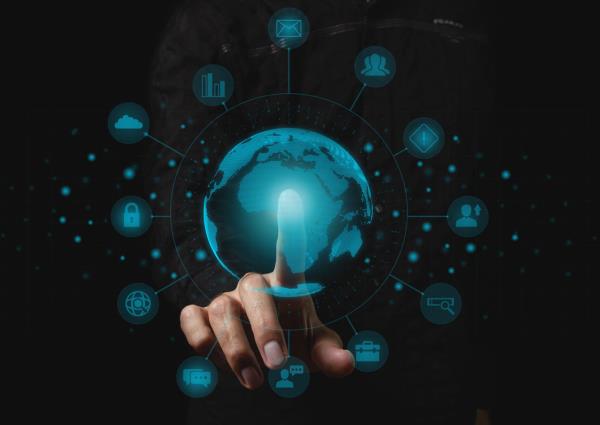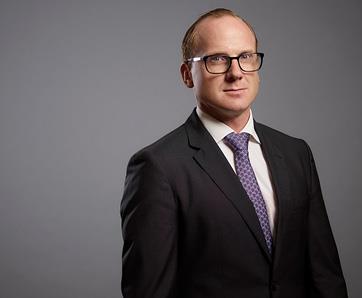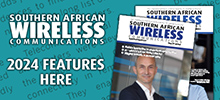10 June 2022

Robert Shepherd sat down with Nicolas Blixell, vice president of Ericsson Middle East and Africa to talk all

Is the progress Africa has made with 5G so far good enough?
Africa is home to over a billion people, and it is also a continent with the most growing economies. ICT is essential for the region’s development, and adequate ICT service deployment and digital connectivity will play a crucial role in achieving economic sustainability in the continent. We believe that ICT is the catalyst for digital transformation, with mobile networks being the crucial ingredient in increasing Africa’s economic competitiveness in the global arena.
As digital infrastructure and transaction become increasingly impactful to the development of the African societies and economies, affordable broadband access will need to be extended to over a billion individuals to bridge the digital divide and enable them to reap the benefits of the digital economy. Prospects of 5G in Africa will accelerate the regional digital agenda.
The Ericsson Mobility Report shows us that more than 340 million people will be connected to mobile broadband across sub-Saharan Africa and by 2025 and mobile data traffic in Africa will rise by more than 50% year-on-year – by far the highest growth rate worldwide. Connectivity will power Africa’s digital future and in achieving a positive impact on people’s lives. However, smarter, AI fueled networks will accelerate Africa’s digital agenda, and drive the progress and prospects of 5G in Africa.
Ericsson works with key service providers across the continent, helping them create new services, explore untapped customer bases and capitalize on digital ecosystems.
It has been claimed that 5G currently offers limited and uneven coverage, is only available in specific locations, with highly populated areas as the key focus. Meanwhile, 5G is on the horizon. How would you answer that?
With the advent of 5G, the criticality of networks has become as significant as their capacity. Ericsson works closely with network providers to implement the best building practices and design methodology to equip the modern 5G Site with mission critical support systems and future-proof hardware – while keeping sustainability and safety top of mind. Ericsson has addressed the 5G mid-band and high-band coverage limitations by developing a flexible 5G Carrier Aggregation solution.
5G Carrier Aggregation is a game-changer for delivering extended coverage and increased network capacity and higher data speeds. It supports control and data traffic on the uplink using a lower frequency band which increases coverage, and on the downlink with a mid or high-frequency band which increases capacity and data throughput.
The close proximity 5G masts have to each other have led to concerns about health aesthetics. Are the concerns valid?
Over the past 50 years a large amount of research on radio waves and health has been conducted. More than 30 independent expert groups and health agencies, including the World Health Organization, have reviewed the available scientific data and have all come to the same conclusion: there are no established health effects from radio waves emitted from mobile phones and base stations complying with international limits. Ericsson’s radio products are tested for compliance with relevant regulations and standards on electromagnetic fields before they are delivered to the market.
Why are 5G upload speeds not very fast?
Today, as demand for cloud gaming, immersive media, and video streaming services grow at a faster rate than ever, 5G enables faster mobile broadband speeds and greater network capacity. We are aware that the key to building a better 5G is to achieve high network performance. Ericsson Uplink Booster efficiently extends 5G mid-band coverage by a considerable margin. Uplink Booster is an innovative software solution which relies on a superior architecture and sophisticated software algorithms for 5G massive MIMO mid-band. The key benefits of Uplink Booster are extended coverage, improved uplink throughput and higher spectral efficiency. We remain committed to pushing the boundaries and ensuring our customers have access to the best mobile connectivity possible.
5G is a battery thirsty technology. What is Ericsson doing to navigate this?
Reducing the level of energy consumption associated with cellular network operations is a strong focus area for Ericsson, and a key sustainability improvement goal. We look at a lot of things in R&D and one of the most important things is energy consumption and reducing our carbon footprint. We have improved our energy usage by 40% on new technology versus our older releases and so operators are able to deliver the same 40% reduction. Typically, 40% of an operator’s operational expenditure is on power, which means that if they can reduce consumption, they will improve their carbon footprint and give more competitive rates to the end users.
Are the fears around cybersecurity valid?
Every business is now a digital business, and a weak security can result in companies facing significant loss and risk to business continuity. Cybersecurity is a critical element in all forms of telecommunications. The good news is 5G has the best security you can get. That’s because it’s embedded in the product so it can be used for the most important aspects of business. Ericsson is uniquely positioned as we understand telecom and IT environments, offering decades of talent, practices and tools to manage the cyber security business process. Our services offer significant total cost of ownership optimization backed with telecom grade reliability when it comes to managing the cyber security business process.
How do you accommodate the less rich nations when it comes to 5G roll out?
Ericsson has been connecting Africa for over 100 years and has built the wireless networks for every generation – from the early 1G networks to the first advanced 5G networks.
The African continent has very high potential for a new era of socio-economic prosperity which could be achieved by leveraging new technologies that make it easier to conduct business, raise productivity and efficiency while encouraging an inclusive society.
Ericsson is working with key service providers across the continent, helping them create new services, new customer bases and new digital ecosystems:
Our promise and commitment towards Africa are to always support a world where digitalization is transforming the ecosystem, enabling sustainable growth, economic development and creating opportunities for all.
Subsequently, Africa in Motion is Ericsson’s mission to empower a sustainable and connected Africa. We are proud to play an active role in not just providing network excellence but also ensuring the nation is equipped to address digital opportunities with the right talent by fast-tracking and training potential leaders and innovators to engage with the most exciting technology on the planet.








